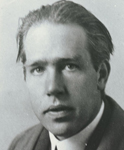 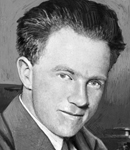 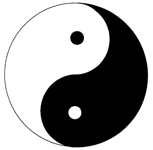  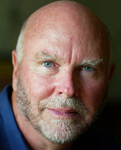 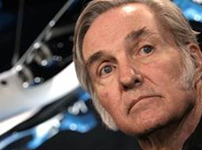 |
||
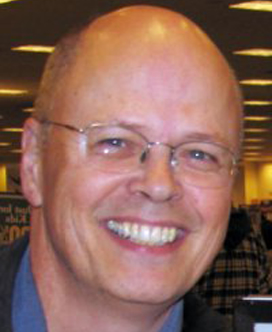 |
Freewill and the |
Purchase Tickets Season Tickets for this event are available at 503-232-2300 or online here! |
Terry Bristol Terry Bristol served as President of the Columbia Willamette Chapter of Sigma Xi (Research Society of America) for several years. He has a number of both scientific and philosophical publications and has made numerous conference presentations. He is an active member of the Philosophy of Science Association, The History of Science Society, the Society for the History of Technology, the Forum on Philosophy, Engineering and Technology, Sigma Xi,The American Philosophical Association, the American Physical Society, and the AAAS.
|
Engineers bring about a great deal of good in the community. The progress leading to modern civilization is largely the result of the engineering enterprise. Why then is it that the modern engineering enterprise is so under-appreciated in relation to science. One reason is that the Scientific Worldview, passively accepted as the most general worldview, has a problem making sense of engineering as real and meaningful. Nobel Laureate physicist Steven Weinberg has remarked that it is “quaint” that engineers actually think they are changing the course of events – since physicists know that universal laws predetermine the course of events from the beginning of time. Engineers, on the other hand, understand themselves to be problem solvers – entailing that they work to alter the otherwise natural course of events. Nobel Laureate Herbert Simon, in his book, Sciences of the Artificial, characterizes engineering problem solving as attempting to move from a current state of affairs to a future more desirable state of affairs. Weinberg does not believe engineers are really doing what they think they are doing. Weinberg doesn’t believe that the engineering enterprise is real and meaningful. A second concern is voiced by Walter Vincenti, Emeritus Professor of Aeronautical Engineering at Stanford, in his recent book, What Engineers Know and How they Know It. Vincenti critiques the image of engineering as ‘merely’ applied science: “Modern engineers are seen as taking over their knowledge from scientists and, by some occasionally dramatic but probably intellectually uninteresting process, using this knowledge to fashion material artifacts.” Vincenti emphasizes, “Engineers know from experience that this view is untrue.” Science does not tell you how to build an airplane. Following in the tradition of the American Pragmatism of William James and John Dewey, this presentation will offer an Engineering Worldview, a more general worldview that coherently subsumes the Scientific Worldview. Dewey characterized the traditional scientific representation of inquiry in terms of a Spectator perspective. The Spectator agenda of inquiry is limited to understanding how the world works – as if from a detached observer standpoint. By contrast Dewey characterizes the Participant representation of inquiry as seeking to learn how to work in the world, how to problem solve, how to bring about a better world. Engineering captures the more general framework of human reason. Engineering, considered as having a Participant agenda, is not just applied science. Rather, scientific inquiry is preparation for creative engineering. Science, as traditionally represented in the Spectator mode, might be better understood as engineering research. Engineering is the more general framework – self-consistent and self-coherent. As long as the scientific representation of engineering dominates, accompanied either implicitly or explicitly, as with Weinberg, with such patronizing imagery, National Academy of Engineering President, William Wulf’s proposed revision of engineering education, and full appreciation of the engineering enterprise will languish. We need to fundamentally rethink the representation of engineering and the place of the engineering enterprise in reality. An important first step is to understand the relation of engineering to the traditional mechanical, deterministic Scientific Worldview. The Engineering Worldview and Philosophy of Engineering represent the long sought after post-scientific, post-objectivist framework. They constitute the More General Framework subsuming the successes of traditional science as inherently limited special cases. The modern evidence requiring a post-scientific understanding of nature and our place in it arose with ‘the new physics’ at the beginning of the 20th century. The complementarity of the particle and wave research programs presents the Participant inquirer with a reality not governed by one universal, objective order that uniquely determines the course of events. Complementarity entails that the future is mechanically under-determined. The emergence of the actual future involves a choice between irreducible alternatives. That choice, by its very nature, can have no objective mechanical determinant or traditional scientific explanation. The choice, by its very nature, cannot be made sense of scientifically – and so appears scientifically arbitrary. However – in the framework of the Philosophy of Engineering – the choice is understandable as the embodied ability of the engineer to problem solve – to attempt to bring about a more desirable (i.e better) future. The Engineering Worldview is found through a reflection on the limits of the Scientific Worldview, and the correct, self-referentially coherent Philosophy of Engineering is found through a reflection on the limits of Philosophy of Science. Duke University engineer Henry Petroski in his recent book, The Essential Engineer, has argued along these same lines maintaining that all real inquiry – often misrepresented as classically logico-mathematically scientific – is better understood as part of the overall creative, experimental, exploratory Participant engineering enterprise. |
Background Read: The Engineering Worldview Abstract |